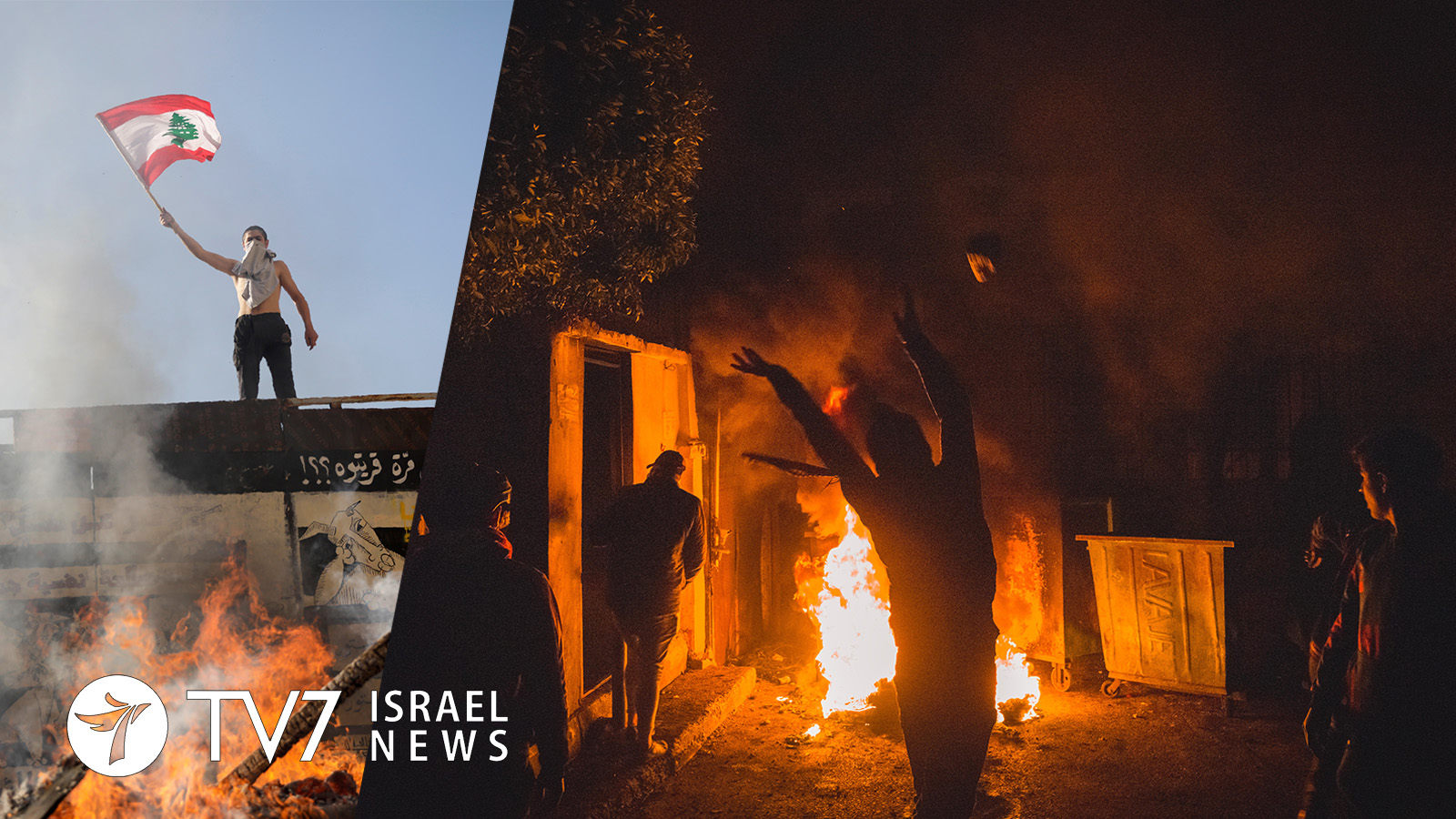Protesters in Lebanon’s northern city of Tripoli rioted for the fourth consecutive day against new COVID-19 lockdown restrictions in a country already wracked by economic hardship.
Enraged demonstrators set fire last night to the municipality just before midnight in Tripoli, which is one of Lebanon’s poorest cities. Others set garbage bins ablaze, and hurled rocks and Molotov Cocktails at security forces, who responded by firing tear gas.
Dozens had marched in the funeral procession for Omar Taybah, who died in Tripoli earlier on Thursday. According to a local hospital that treated him, a security source and residents, the 30-year-old was killed after being struck by a bullet in overnight clashes between security forces and protesters.
Human Rights Watch has called for an investigation into the death.
Security forces admitted to firing live rounds to disperse rioters who set the building’s guard room on fire and ripped out a gate in violence that “led to the fall of a victim,” in a statement that did not name Taybah.
Lebanon‘s Internal Security Forces said rioters threw hand grenades, including at a patrol, injuring at least 9 officers. They also reiterated their pledge to respond to the unrest with “full severity and decisiveness.”
There has been widespread public anger over a government-imposed 24-hour curfew to curb a COVID-19 surge that has killed 2,621 Lebanese. The demonstrators insist the lockdown has cut off their livelihoods in an already-collapsing economy.
Humanitarian workers are warning that in the absence of significant government aid, the lockdown is piling extra hardship on the poor – who they say amount to more than 50% of Lebanon’s population (estimated by the United Nations to be 6,859,408 in 2018).
Caretaker Prime Minister Hassan Diab insists that the coronavirus lockdown is necessary. Hospitals in the country are battling some of the region’s highest infection levels, amid severely strained resources and shortages due to Lebanon’s financial meltdown.
Eve though a currency crash has triggered fears of rising hunger, Lebanese leaders have yet to launch a rescue plan or enact reforms to unlock aid. Government inaction has prompted rebuke including from foreign donors, most particularly France.
” I want to deliver a message to the politicians in Lebanon that they led the protesters to here,” one unnamed protester in Tripoli told Reuters. “If those protesters weren’t hungry they wouldn’t come here, if bread is not available to the poor, politicians won’t be safe and we will protest everyday, our demands are to reopen shops and reduce a bit in the dollar exchange rate, people can’t breath anymore.”
Lebanon’s economic crisis is the worst since the country’s 1975-1990 civil war. Protests have been ongoing since 2019 over allegations of decades-long graft and corruption by the state.
